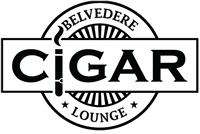From Seed to Ash: A Tariff Reckoning in the Cigar World
From Seed to Ash: A Tariff Reckoning in the Cigar World
When we think of cigars, we don’t just think of smoke. We think of soil. Of sun. Of time. Of care. A cigar is not a commodity—it’s a culmination. A ritual. A quiet moment wrapped in leaf and patience. So when policy shifts like new tariffs threaten that ecosystem, it’s not just the margins that suffer. It’s the entire story.
And right now, the story is getting more expensive.
The Numbers Don’t Lie: A Breakdown
Let’s begin with the math.
A premium hand-rolled cigar from Nicaragua costs about $3.75 at the export stage. Factor in packaging, logistics, and insurance, and we’re now at roughly $4.50 landed.
A 19% tariff on Nicaraguan cigars adds $0.86 per stick. The same cigar from the Dominican Republic or Honduras—where tariffs sit at 10%—only adds $0.45.
From there, distributors apply a standard 100% markup, bringing the cigar to $9.00 wholesale. Add a state tobacco tax—say, 75% in New York and you’re now looking at $15.75 before it even reaches the shelf.
Retailers, operating on a 40 to 50% margin, set that cigar at $22 to $24 at final sale.
So let’s say you’re holding a box of 25 cigars. That tariff has added between $11 and $22 just in federal policy. That’s real money. Real consequence. And real pressure on every player in the value chain.
The Chain is Only as Strong as its Links
From seed to ash, each hand in this process matters. The grower who prunes the leaf. The torcedor who rolls it by muscle memory. The importer who pays for freight. The lounge owner who lights that stick for the first-time customer looking for quiet.
And here’s the truth: everyone in that line has an opportunity and a responsibility to absorb, to optimize, or to innovate.
1. Growers and Producers: Tighten the Bottom, Not Just the Belt
Yield efficiency: Using vertical shade nets or optimized soil testing can increase harvest by 10 to 15%. That’s not theory—it’s agronomics. More output, same labor, same acreage.
Reduce waste: Discard rates during fermentation and rolling often exceed 20%. Even a 5% reduction increases net output, offsetting raw cost per cigar by up to $0.12.
2. Exporters and Importers: Rethink the Route
Bonded warehouses and USMCA logistics by routing filler through compliant jurisdictions can legally avoid the 19% tariff. The cigar still burns the same, but the paperwork does the heavy lifting.
Currency hedging: Locking in favorable forex on bulk purchase contracts can recover another 2 to 3% in margin.
It may seem small. But over 100,000 cigars, that’s a $3,000 to $5,000 difference. That money can be passed back or invested forward.
3. Distributors and Brands: The Power of the Bundle
House brands offer 25 to 30% lower COGS compared to legacy labels.
Shift mix: Temporarily emphasizing Dominican and Honduran SKUs reduces overall landed tariff exposure across portfolios.
Bundle packaging (no cedar boxes, no bands) can save $0.40 per unit.
Those savings don’t require a board vote. They require a calculator and a little courage.
4. Retailers: The Final Frontier
Retailers are where the policy hits the people. So here’s where the greatest opportunity and the greatest obligationresides.
Progressive pricing: Don’t raise the price on everything. Keep your $12 to $15 sticks stable, and adjust premium products. Customers feel fairness. They reward transparency.
Educated substitution: Offer curated “tariff-smart” bundles. Mix DR/Honduras with select Nicaraguan, keeping average box prices level.
Loyalty-based incentives: Give points, offer humidification packs, run tastings. Create value beyond price.
A retailer selling 4,000 cigars a month, who shifts 25% of inventory from Nicaragua to the DR or Honduras, avoids approximately $750 in monthly tariff costs. Reinvest half back into your customers through promotions—and you’ve just created loyalty out of inflation.
It’s Not Just a Tariff. It’s a Test.
The easy path is to complain. To pass the cost forward. To hope the market shrugs and keeps buying.
But we know better.
This isn’t the first time policy has tested small business. It won’t be the last time global pressure asks local hands to stretch.
The real question is: what do we do with it?
Because inside this challenge is a real chance a chance to streamline, to educate, and to reassert who we are as cigar merchants, makers, and mentors.
We are not here to simply sell a product. We curate an experience. We create moments. We light something more than just tobacco we light belonging.
That means being smart with our math. But more importantly, it means being principled with our decisions.
Conclusion: Protect the Ritual
Tariffs will come and go. But if we get lazy, if we lose trust, if we strip the dignity out of the transaction what we lose isn’t profit. It’s purpose.
So let’s take this moment seriously.
Let’s model cost absorption. Let’s push for efficiency. Let’s build smarter partnerships upstream, and show more heart downstream.
And above all let’s keep that moment of calm, that moment of connection, that one clean draw within reach for the next brother or sister who walks through our door, takes a seat, and says:
